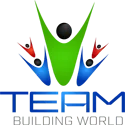Do you want to know how to hire for emotional intelligence?
Emotional intelligence, also known as Emotional quotient or EQ, is a critical skill in the workplace. It refers to the ability to manage one’s emotions, as well as being able to perceive and respond to others’ emotions effectively. Having individuals with high EQ can lead your organization towards success.
In this article, let’s discuss how you can hire employees for emotional intelligence. This will help you create a team that is not only highly skilled but also emotionally intelligent.
The Benefits of Hiring High EQ Employees
Hiring for emotional intelligence (EQ) is a strategic approach to building a resilient, collaborative, and high-performing team. Employees with high EQ not only excel individually but also contribute significantly to fostering positive workplace culture. Here are the main benefits of hiring high EQ employees:
Improved Team Collaboration
Employees with high EQ are skilled at understanding and navigating interpersonal dynamics. This enables them to work seamlessly with colleagues, reducing friction and promoting cooperative teamwork.
Enhanced Leadership Potential
High EQ individuals excel at managing emotions and adapting to challenges, making them natural leaders. They inspire teams by demonstrating empathy, clear communication, and effective decision-making.
Better Conflict Resolution
With strong emotional awareness, EQ-driven employees handle disputes calmly and constructively. They can mediate disagreements, ensuring issues are resolved with minimal disruption and fostering stronger relationships.
Increased Employee Engagement
High EQ employees understand their own and others’ emotional needs, leading to improved morale. Their ability to foster meaningful connections motivates colleagues and enhances overall job satisfaction.
Stronger Client Relationships
EQ-oriented employees excel at reading social cues and building rapport with clients. Their empathy and communication skills create trust as well as loyalty, boosting customer satisfaction.
Adaptability to Change
Emotionally intelligent employees remain composed during times of change or stress. Their resilience helps them to stay focused, enabling smooth adjustments to new challenges or organizational shifts.
How to Hire for Emotional Intelligence?
Here are the 5 steps for hiring individuals with high emotional intelligence.
Step 1: Understand What Emotional Intelligence Looks Like in the Role
The first step is to clearly define what emotional intelligence means for the specific role. Different positions require different levels of EQ, so it’s important to know what qualities are vital for success in the particular job. Here are the specific traits to consider:
Self-Awareness
Self-aware individuals understand their emotions and how these emotions impact their actions as well as decisions. This trait helps them remain grounded and make thoughtful choices in challenging situations.
Empathy
Empathy allows individuals to understand and share the feelings of others. It fosters connection and improves communication by considering the perspectives of teammates or clients.
Adaptability
Adaptable individuals can pivot and adjust to changing circumstances with ease. This flexibility helps them remain productive and calm under pressure.
Strong Communication
Communicative individuals excel at clearly expressing ideas and actively listening to others. This skill promotes collaboration and reduces misunderstandings within teams.
Conflict Resolution
These individuals handle disputes effectively by addressing issues calmly and objectively. Their approach enhances workplace harmony and strengthens professional relationships.
Resilience
Resilient individuals recover quickly from setbacks and maintain focus amid adversity. This quality helps teams overcome challenges and sustain momentum.
Step 2: Incorporate EQ into the Job Description
Emotional quotient is a critical attribute in the modern workplace, driving both individual and team success. Including EQ in job descriptions ensures you attract candidates who excel in communication, empathy, and adaptability. So, here are a few things that you can consider:
Highlight EQ-Driven Skills
Include specific soft skills such as empathy, communication, and active listening to reflect the importance of EQ in the role.
Use EQ-Related Keywords
Incorporate terms like “emotional intelligence,” “interpersonal skills,” and “self-awareness” to clarify the job’s focus on EQ.
Provide Collaboration Examples
Describe scenarios where teamwork or conflict resolution is required to show the need for EQ in daily tasks.
Outline Adaptability Requirements
Highlight roles that demand flexibility and problem-solving under pressure, demonstrating the value of emotional resilience.
Stress Leadership Qualities
For leadership positions, emphasize skills like motivating teams, managing disputes, and fostering innovation through emotional insight.
Mention Development Opportunities
Reference training or growth opportunities that support EQ development, showing the organization’s commitment to fostering these traits.
Step 3: Use Behavioral Interview Questions
To effectively assess emotional intelligence in candidates, use behavioral interview questions that ask about past experiences or scenarios. These types of questions can reveal how a candidate has handled difficult situations, their ability to manage emotions, and their level of self-awareness.
Some examples of behavioral interview questions that can target EQ include:
Self-Awareness
- Can you share an example of a time when you received constructive feedback? How did you respond, and what did you learn from it?
- How do you typically recognize and manage your own emotions during stressful situations?
- What strategies do you use to evaluate your strengths and weaknesses?
Self-Regulation
- Describe a situation where you had to remain calm and composed under pressure. What steps did you take to manage your emotions?
- Have you ever found it difficult to adapt to a significant change? How did you overcome it?
- Tell me about a time when you felt frustrated or angry at work. How did you handle the situation?
Motivation
- What drives you to achieve your professional goals, especially when facing setbacks?
- Can you give an example of a time when you went above and beyond to complete a task? What motivated you?
- Describe a time when you set a challenging goal for yourself. How did you stay focused and maintain your motivation?
Empathy
- How do you approach resolving conflicts between team members as a leader or colleague?
- Can you recall a time when you had to consider another person’s perspective to solve a problem? How did it help?
- Describe a situation where you supported a colleague or teammate through a difficult time.
Social Skills
- Tell me about a time when you successfully built a relationship with someone who had a different communication style from yours.
- How do you approach building rapport with team members or clients you don’t initially connect with?
- Can you share an example of how you encouraged collaboration within a team to achieve a common goal?
Step 4: Conduct EQ Assessments
After conducting the behavioral interview, you can further assess a candidate’s emotional intelligence by administering EQ assessments. These tests can provide valuable insights into an individual’s self-awareness, social awareness, and relationship management skills. Here are some assessment methods you can try:
Self-Report Questionnaires
These assessments require candidates to evaluate their own emotional tendencies and behaviors in specific scenarios. They are quick and easy to administer, offering insights into self-awareness as well as emotional regulation.
Simulation Exercises
Candidates participate in role-playing or scenario-based exercises to observe how they manage real-world emotional challenges. This method allows for a practical evaluation of relationship management skills and adaptability.
Peer Feedback Evaluations
Collecting input from colleagues, managers, or team members provides a well-rounded view of a candidate’s EQ. This approach highlights strengths as well as areas for improvement in social awareness and interpersonal skills.
Situational Judgement Tests
These tests present hypothetical situations, asking candidates to choose the best course of action. They are effective for evaluating decision-making and understanding of emotional contexts.
360-Degree Feedback Assessments
Candidates receive feedback from multiple sources, including peers, supervisors, and subordinates, to gauge EQ comprehensively. This holistic method helps identify patterns in behavior across different working relationships.
Step 5: Prioritize Emotional Intelligence in the Hiring Decision
After conducting EQ assessments, it is crucial to prioritize this quality in your final decision. While technical qualifications and experience are important, research has shown that employees with high EQ perform better. They also have higher job satisfaction. So, consider these factors:
Cultural Fit
Assess whether the candidate’s values and work style align with the organization’s culture. A strong cultural fit promotes engagement and long-term satisfaction.
Relevant Experience
Look for candidates with relevant experience, not just years of experience. Pay attention to the specific skills as well as knowledge needed for the role and assess if the candidate possesses them.
Reference Checks
Conduct thorough reference checks to validate the candidate’s qualifications and past performance. This step provides valuable insights into their reliability, work ethic, and professional relationships.
Growth Potential
Identify if the candidate has the capacity to grow within the organization. A candidate with ambition and a desire to learn can contribute to long-term success.
Communication Skills
Assess the candidate’s ability to articulate ideas clearly and effectively. Strong communication skills are critical for collaboration and ensuring smooth workflows within a team.
Problem-Solving Ability
Consider how the candidate approaches challenges and their ability to develop creative solutions. A strong problem-solver can adapt to unexpected situations and drive progress in difficult circumstances.
Teamwork
Evaluate the candidate’s ability to work collaboratively with others. A team-oriented individual contributes to a positive work environment and helps achieve collective goals.
Want Some Unique Leadership Development Activities?
If you want some unique activities to equip your employees (both in-person and virtual) with leadership skills, qualities, and mindset, you can get my new e-book:
Or Want Some Unique Team Building Activities?
If you want some unique activities for your employees (both in-person and virtual), you can get my new e-book:
Final Words
Incorporating emotional intelligence into your hiring process can lead to a stronger, more cohesive team. By prioritizing it, you equip your organization with employees who excel in communication and collaboration. This focus on emotional awareness can also foster a positive workplace culture that promotes growth and productivity. Remember to look for signs of emotional quotient through thoughtful interview questions and behavioral assessments. Ultimately, hiring for EQ is an investment in the long-term success and resilience of your team.
FAQ: Hiring for Emotional Intelligence
You might have these questions in mind.
What is emotional intelligence (EQ)?
Emotional intelligence (EQ) is the ability to recognize, understand, and manage your own emotions while also empathizing with others. It involves skills like self-awareness, emotional regulation, and effective communication. These traits are critical for fostering strong relationships and navigating interpersonal dynamics in the workplace.
Why is EQ important when hiring?
Employees with high EQ contribute to a collaborative work environment and positively impact team dynamics. They are more adaptable, handle stress well, and are effective problem-solvers in challenging situations. Prioritizing EQ in hiring ensures resilience and long-term success for your team.
Can EQ be developed or improved over time?
Yes, emotional intelligence (EQ) can be cultivated with self-reflection, practice, and deliberate effort. Training programs and mindfulness practices can help people enhance their communication as well as empathy skills. Leaders also play a key role in fostering environments where EQ development is encouraged.
Is EQ more important than IQ?
Both emotional intelligence (EQ) and intelligence quotient (IQ) are important, but they serve different purposes. IQ measures cognitive abilities like problem-solving as well as logical reasoning, while EQ focuses on managing emotions, building relationships, and effective communication. The importance of each depends on the context—IQ may be critical for technical tasks, while EQ is essential for teamwork and leadership. Ideally, a balance of both EQ and IQ leads to greater personal as well as professional success.
What are common signs of high EQ in a candidate?
Candidates with high EQ often demonstrate active listening and empathy in conversations. They tend to stay calm under pressure, respond thoughtfully, and communicate clearly. Additionally, they show a willingness to learn and adapt, which indicates emotional maturity. Observing how a candidate responds to constructive criticism or feedback can also be a good indicator of their emotional quotient. Those with high EQ are open to feedback and use it as an opportunity for growth rather than becoming defensive or taking it personally.

